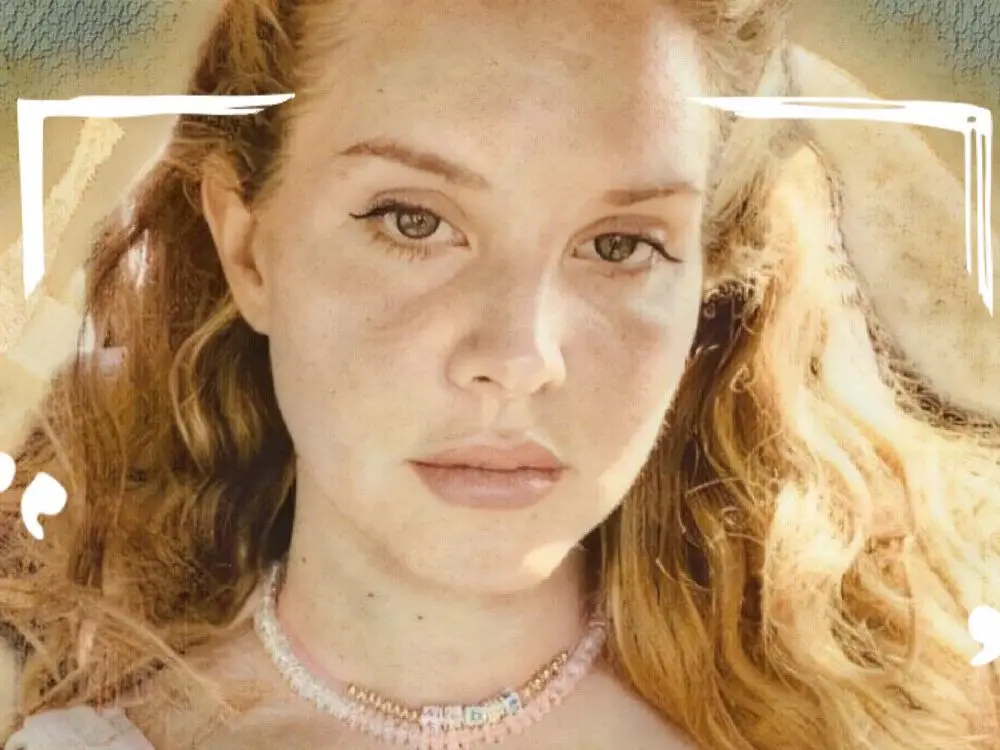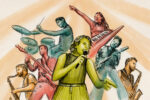For 13 years, Lana Del Rey has been producing music with richly poetic lyrics while crafting a world of dark American glamour. However, Del Rey has never been able to escape critical backlash. Since the beginning of her career, she has been denounced for depicting situations of domestic abuse and female fragility in her lyrics. In May of last year, her statement via Instagram, “ Question for The Culture,” promoted a stagnant version of white-washed feminism. Despite all the ridicule leveled at her, Del Rey continues to write music in order to tell her own story, on her own terms. Her desire to release music out of her own passion and quest for self-growth, free from the need for positive critical reception, was evident on May 20, when she pre-released three singles off her new record, “Blue Banisters,” without promoting them on social media.
However unexpected the release, “Blue Banisters,” “Wildflower Wildfire” and “Text Book” did not entirely appear out of the blue. Merely a day after the singer released her long-awaited seventh studio album, “Chemtrails Over the Country Club,” she took to Instagram to announce that a new record, called “Rock Candy Sweet,” was to be released on June 1. The announcement came in the form of a glamourous selfie of Del Ray staring seriously into the camera. A month later, she edited this selfie with the title “Blue Banisters,” which was to be released on July 4. These first two pre-released singles featured the singer reconciling with toxic relationships in her past through the healing powers of female solidarity — hinting at the rest of the album’s content.
https://twitter.com/LanaDelRey/status/1387252158488211459
The title track, “Blue Banisters,” opens with Del Rey reciting a conversation with her friend Jenny. Jenny questions Del Rey about a photo of her sitting on a John Deere tractor. In response, Del Rey laments “Oklahoma” and sings of a hazy memory she doesn’t remember. From the onset, Del Rey alludes to a troubled past and a version of herself she is no longer familiar with, portraying herself as on the mend.
The opening verses of this song are riddled with images similar to those that dominated “Chemtrails Over the Country Club.” Del Rey’s reference to Oklahoma connects to the track “Tulsa Jesus Freak” where she sings of a passionate “white-hot” relationship that made her feel no longer like “a candle in the wind” or someone marked by great instability. It is not a mistake that she sought to connect “Blue Banisters” to this song’s story of male dependency and superficial romance.
The chorus of the song clues listeners into the symbolism behind the “Blue Banisters.” Del Rey sings of a man in her past who promised her happiness and a future so long as she painted her banisters blue. When the chorus repeats, Del Rey changes the lyrics to be about “her sisters” who attempt to heal the “hole in her heart” by painting her banisters “green and grey.” It is clear that this song is focused on female friendship and collective healing, contradicting the persona she portrayed in “Tulsa Jesus Freak” and in her early music. The track portrays Del Rey’s personal growth — finding out who she is outside of her romantic relations.
The following track, “Wildflower Wildfire,” takes listeners into another unexplored area of the singer’s life — her relationship with her mother. This highlights another feminine relationship, albeit a troubled one. She sings of how her “father never stepped in / when his wife would rage at me.” She hints that this relationship prompted her to have issues with her mental health, singing of “hospitals,” “lithium” and ending up “awkward but sweet.”
In the song’s chorus, Del Rey sings about wishing to never “turn into something that burns,” or a desire to never turn into her mother, thus forcing her into her identity of a slow-burning “candle in the wind” that once maintained, can never get out of control. The song ends on the note of “it’s you from whom I learn,” which could refer to how young women learn from their female influences. They have the power to belittle one another or uplift one another — to become wildfires that tear one another down or sisters that flock together to heal.
Despite this powerful message of self-growth and a new era of Del Rey’s songwriting evident in these first two singles, their content cannot be separated from her recent social media blunders. Del Rey claimed contemporary female pop artists such as Doja Cat, Ariana Grande and many others were never criticized for their vulgar lyrics as she was — a grossly inaccurate statement. Del Rey went on to champion herself as an artist who “paved the way for other women.” Regardless of any possible influence she may have had in de-stigmatizing explicit subject matter, these were disturbingly disillusioned claims.
To further complicate matters, Del Rey went on to assert that feminism’s third wave needs to include a space “for women who look and act like me.” After mentioning mainly artists of color in the statement, critics perceived this as a declaration of ridiculous white-lady-centric feminism, promoting the stereotype of white women as inherently fragile and less accountable, simply to victimize herself. She also grossly delegitimized the plight of Black female artists by insisting her own struggles in the music industry were harsher than theirs.
This statement exposed the artist’s racial bias and painful unawareness of white privilege — it was impulsive and misconceived. In a video posted to Instagram a few days later, Del Rey explained that she meant her statement to stress the point that “nobody gets to tell your story but you.” Del Rey seemed to be prompted originally by her inability to let go of the disapproval she received early in her career as someone who glamorized abuse.
It seemed that all Del Rey sought to do with her statement was to examine the ever-changing stigmas of artistry and the limits of what women creators are allowed to depict in their music. In harmfully victimizing herself and advocating for “fragility,” Del Rey failed to convey what she truly meant; she has always sought to use her art for healing — for herself as well as for women who had been in “submissive” relationships similar to hers.
https://www.instagram.com/p/CAcQPuBJdir/?utm_source=ig_web_copy_link
The final track, “Text Book,” has the strongest connection to the accusations of racism facing the singer. Del Rey sings of desiring to reconcile with her father and mentions “rewriting history.” She refers to her unhappiness in her relationship with the man of “Blue Banisters” and the version of herself she was with him. The men she met who had once “felt right” ended up betraying her. Ultimately, this song examines her romantic relationships through her relationship with her father figure. The song seems to be about her regret in allowing her relationships with men to mold how she saw herself.
Yet in this song, Del Rey also references the “Black Lives Matter” movement. She uses it as a gateway into saying that her intentions are good and often get overlooked. In the song, Del Rey sings of the one person who “saw who I am.” This echoes her response to accusations of racism thrown at her, believing it to be a result of the perceptions of her character. Despite the power of the first two singles to rewrite her story and promote a narrative of healing and female empowerment, the final single seems to continue to project her self-imposed narrative of being victimized by the “culture” and a need to be loved by a male figure to give her stability.
These three tracks are undoubtedly some of Del Rey’s most direct and vulnerable and reveal aspects of her past she has never written about before. However, the singer still has some growing to do to let go of her self-victimizing habits. As any artist does, Del Rey has the right to tell her own story free from immediate judgment or critical slander. But she is a public figure who has to be aware of the impact of her comments. Although she proves her talent time and time again in her music, her actions make her work difficult to fully appreciate.
With cases like Del Rey’s, it seems the real question for the culture becomes how and if it is possible to separate the value and beauty of an artist’s work from who they are outside of it. Del Rey does not believe herself a racist or ill-intentioned person. She is simply someone who has received so much criticism over the course of her career that she allows it to get in the way of her artistry. With the release of the full “Blue Banisters” album later this year, her stunning abilities as a songwriter will bring listeners into her journey to discover her self-worth. Del Rey does not need to publicly victimize herself anymore to tell this story.

















